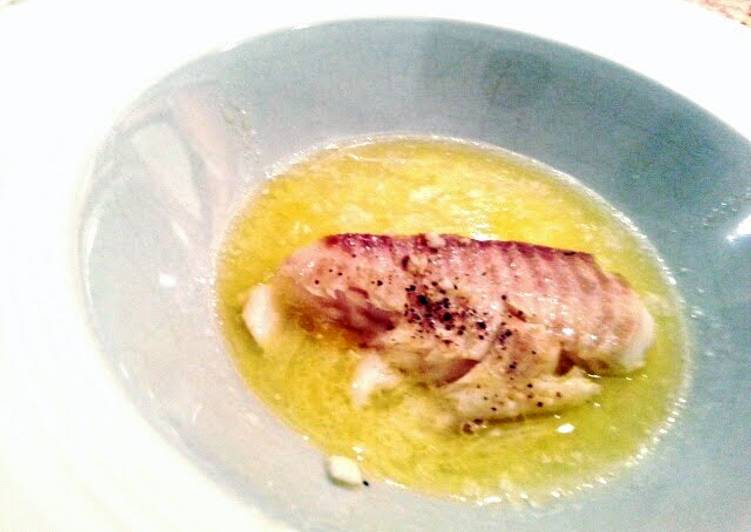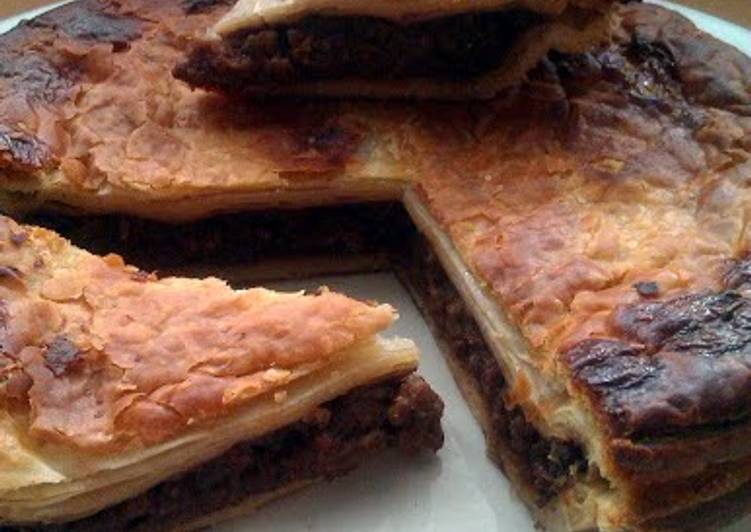![Very Adaptable [Basic Recipe] Takikomi Gohan](https://img-global.cpcdn.com/recipes/5647286624321536/751x532cq70/very-adaptable-basic-recipe-takikomi-gohan-recipe-main-photo.jpg)
Hello everybody, I hope you’re having an amazing day today. Today, we’re going to make a special dish, very adaptable [basic recipe] takikomi gohan. It is one of my favorites. This time, I will make it a little bit tasty. This is gonna smell and look delicious.
Very Adaptable [Basic Recipe] Takikomi Gohan is one of the most popular of current trending foods on earth. It’s enjoyed by millions daily. It is simple, it is fast, it tastes yummy. Very Adaptable [Basic Recipe] Takikomi Gohan is something which I have loved my entire life. They are nice and they look fantastic.
Takikomi Gohan is a wonderful and comforting Japanese mixed rice recipe made with seasonal Takikomi Gohan is a Japanese rice dish which short-grain rice are cooked with vegetables What are good ingredients to put in your Takikomi Gohan recipe? Let's start with the most basic one, which is. Takikomi Gohan (炊き込みご飯) is a wonderful and comforting Japanese mixed rice recipe made with seasonal ingredients.
To get started with this recipe, we have to first prepare a few ingredients. You can cook very adaptable [basic recipe] takikomi gohan using 22 ingredients and 34 steps. Here is how you can achieve it.
The ingredients needed to make Very Adaptable [Basic Recipe] Takikomi Gohan:
- Get For the 5-ingredient chicken rice
- Get 1/2 to 2/3 piece Chicken thigh meat
- Prepare 1 1/2 tbsp C. Usukuchi soy sauce, to pre-season the chicken
- Take 1 1/2 tbsp C. Mirin to pre-flavor the chicken
- Get Basic Takikomi Gohan
- Take 12 1/2 ml A. Sake
- Take 700 ml White rice
- Prepare 285 ml A. Water
- Make ready 40 ml A. Mentsuyu, homemade or store-bought
- Prepare 50 ml A. Chicken stock (made properly from chicken…or use water instead)
- Make ready 12 1/2 ml A. Mirin
- Prepare 12 1/2 ml A. Sake
- Get 1 piece B. Aburaage (blanched in boiling water and julienned)
- Make ready 1 B. Burdock root (shaved into thin pieces and soaked in water)
- Get 285 ml A. Water
- Make ready 1 B. Shiitake mushrooms, carrots etc. - whatever vegetables you like
- Prepare 50 ml A. Chicken stock (made properly from chicken…or use water instead)
- Make ready 1/4 tsp Dashi stock granules
- Take 1 piece B. Aburaage (blanched in boiling water and julienned)
- Prepare 1 B. Burdock root (shaved into thin pieces and soaked in water)
- Take 1 B. Shiitake mushrooms, carrots etc. - whatever vegetables you like
- Get 1/4 tsp Dashi stock granules
Chicken, meat, and seafood may also be included. Often, Takikomi Gohan is made with fresh seasonal ingredients such as vegetables, mushrooms, or seafood, and this often opens the door for a variety of. Takikomi Gohan is Japanese mixed rice, seasoned with dashi, mirin, sake and soy sauce. I personally use kombu dashi for this dish because the shiitake used in this recipe adds its own unique flavours.
Instructions to make Very Adaptable [Basic Recipe] Takikomi Gohan:
- Rinse the rice well and drain in a fine mesh sieve. Leave for at least 90 minutes to drain thoroughly.
- Put the A. ingredients in a bowl and set aside. I use frozen chicken soup that I have stocked, but you can use water instead.
- Cut up the B. ingredients into easy to eat pieces. Drain off any excess moisture.
- Put the drained rice from Step 1 and the Step 2 ingredients in the rice cooker, and soak for 30 minutes.
- The total of the Step 3 ingredients is a bit less than 400 ml, so it's just the right amount of liquid for 2 rice cooker cups of rice.
- If you have drained the rice properly in Step 2, the liquid should be enough for the rice cooker '2 cup' line.
- After Step 4 (soaking for 30 minutes), add the dashi stock granules and mix in. Mix the rice at least once.
- Add the cut up ingredients from Step 3 to the rice cooker, switch the cooker on and cook as usual.
- To make the 5-ingredient chicken rice: Cut the chicken into easy to eat pieces and combine with the C. ingredients. Let rest for 30 to 40 minutes.
- Don't let the chicken sit for too long or it will become too salty.
- Grill the chicken over an open flame until lightly singed on the outside. The chicken can still be raw inside, but this open-flame quick grilling adds a lot of flavor. You can skip this step if you prefer, and the rice will still be fine.
- If you don't have access to an open flame to grill the chicken, leave as-is but pat the surface dry with paper towels.
- Attention: If you don't pat the marinated chicken properly dry, the rice will become too salty.
- Add the dashi stock granules and Step 3 ingredients (the same as Steps 7 and 8 above), plus the vegetables and chicken (either surface-grilled as in Step 9 or patted dry as in Step 10) to the rice cooker, and cook as usual.
- The rice is cooked! Mix it up using a cut-and-fold motion with your rice paddle, leave to rest in the cooker for another 10 minutes, and it's done.
- This is the 5-ingredient chicken rice. If you can grill the chicken, it will have a nice grilled taste and be really delicious!
- Here, I use a Staub 16 cm diameter cocotte to cook 1.5 rice cooker cups of 5-ingredient chicken rice. The color differences in the photos are just because of different lighting conditions.
- For how to cook the rice in a Staub pot, see Steps 22 onwards.
- Here I just added burdock root and aburaage, and mixed in some simmered shiitake mushrooms when the rice was cooked. This is delicious.
- Whatever vegetables, meat, etc. you add to the rice, this is a very well flavored takikomi gohan, so it's good for onigiri rice balls. It also goes well with nori seaweed.
- Simmered shiitake mushrooms, which are also used as an accompaniment to somen or cold udon noodles, are also great with this.
- To make 2 rice cooker cups of rice in a 20 cm diameter Staub pot, follow the same steps, just cook in the Staub pot instead of a rice cooker.
- For Step 7 above: start cooking with the Staub over medium heat. When the edges of the liquid start to bubble, adjust the heat so that the flames aren't peeking out from under the pot.
- When big bubbles rises to the surface, cover the cocotte with a lid. Set a timer to 1 minute.
- I added the additional ingredients without flavoring them, since I mix the simmered shiitake mushrooms in later. Otherwise, add them as specified in Steps 14 and 18.
- After 1 minute has passed, turn the heat down as low as possible. Set the timer to 9 minutes.
- After 9 minutes, turn the heat off and leave the pot with the lid on for 12 minutes. Do not open the lid until the 12 minutes are up!
- After 12 minutes, the rice is done. I added the simmered shiitake mushrooms from step 25 here and folded them into the rice.
- For this version I used really cheap imported matsutake mushrooms, but was still really delicious. The burned bits of rice on the bottom are the best! I think everyone would like this.
- "Concentrated All-Purpose Mentsuyu - For Somen, Udon, and Soba" is packed with bonito dashi stock flavor, and is delicious as a noodle dipping sauce! - - https://cookpad.com/us/recipes/170505-concentrated-all-purpose-mentsuyu
- To use this as a somen noodle dipping sauce, use 1 part mentsuyu concentrate to 2.5 to 3 parts water.
- My mentsuyu sauce concentrate is a 1:3 concentrate. If you use commercial mentsuyu, use one with the same concentration.
- I use this handheld blowtorch. It's less than 2000 yen and is very useful.
- This is, Manila Clam Seasoned Rice. It has a refined white dashi stock base. Please try it if you like.
The best part about Takikomi Gohan is the very bottom where the rice gets crispy and. Dashi gives this vegetable rice recipe its savory depth. Rinsing the rice may seem like an extraneous step but it removes some of the surface starch for fluffier rice. All Reviews for Japanese Shiitake & Vegetable Rice (Takikomi Gohan). This seasonal recipe for Takikomi Gohan (mixed rice) was sent by Ayako Egawa in Japan.
So that is going to wrap it up with this special food very adaptable [basic recipe] takikomi gohan recipe. Thank you very much for reading. I’m confident that you will make this at home. There’s gonna be more interesting food at home recipes coming up. Remember to bookmark this page in your browser, and share it to your loved ones, colleague and friends. Thanks again for reading. Go on get cooking!

